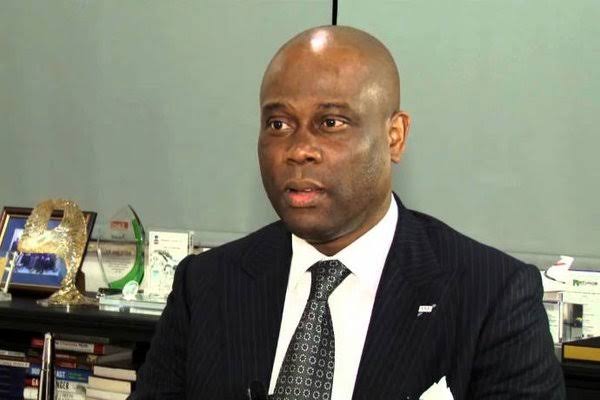Nigeria News
Wigwe: US helicopter company may face criminal charges over crash

Operators of the helicopter that crashed and claimed the lives of former Access Holdings Group CEO Herbert Wigwe, his wife Doreen, their son Chizi, and three others may soon face criminal charges in the United States, according to aviation experts.
The fatal incident occurred on February 9, 2024, when an Airbus EC130B4 operated by Orbic Air, LLC, under Title 14 of the U.S. Code of Federal Regulations Part 135, went down near Halloran Springs, California. All six occupants, including former NGX Group Chairman Abimbola Ogunbanjo and two pilots, perished in the crash.
A final report from the U.S. National Transportation Safety Board (NTSB) cited pilot disorientation and a breach of standard flight protocols as key contributing factors. Investigators found that the pilots chose to proceed under visual flight rules (VFR) despite flying in instrument meteorological conditions (IMC)—a serious safety violation. A faulty radar altimeter, which had shown signs of malfunction earlier in the day during a repositioning flight, was also flagged as a potential contributor to the accident.
Aviation professionals in Nigeria and abroad now suggest that Orbic Air could be held criminally liable for negligence. Legal proceedings are expected to unfold in the United States, where a judicial panel is being convened to review the findings and determine liability.
Capt. Muhammed Badamasi, a retired Nigeria Airways pilot, told Punch that the matter has moved into the legal domain. “The panel will evaluate whether the crash was the result of a violation of safety protocols. If found culpable, it becomes a legal issue, and criminal charges could follow,” he explained.
He added that while the Federal Aviation Administration (FAA) and NTSB will lead the investigation, Nigeria’s Civil Aviation Authority (NCAA) and the Nigerian Safety Investigation Bureau may also be involved as observers, given the nationality of some victims.
Capt. Ado Sanusi, retired pilot and current Managing Director of Aero Contractors, echoed the sentiment. He noted that once the investigation is concluded, prosecutorial decisions rest with legal authorities. “If negligence is confirmed, prosecution will follow in line with U.S. aviation and criminal laws,” he said.
The NTSB’s findings highlighted that the malfunctioning radar altimeter had been identified earlier in the day, yet the helicopter was cleared for a passenger flight regardless. Experts argue that the decision to proceed with the flight, despite these red flags, demonstrates a disregard for standard safety protocols.
Aviation analyst Chris Aligbe emphasized that global attitudes toward aviation safety have shifted, and accountability is no longer optional. “There was a time when these kinds of issues went unpunished. But the industry has evolved. If negligence is confirmed, those responsible will face the full weight of the law,” he said.
As legal scrutiny deepens, the case is shaping up to become a landmark example of regulatory enforcement in the charter aviation sector—both in the U.S. and internationally.























